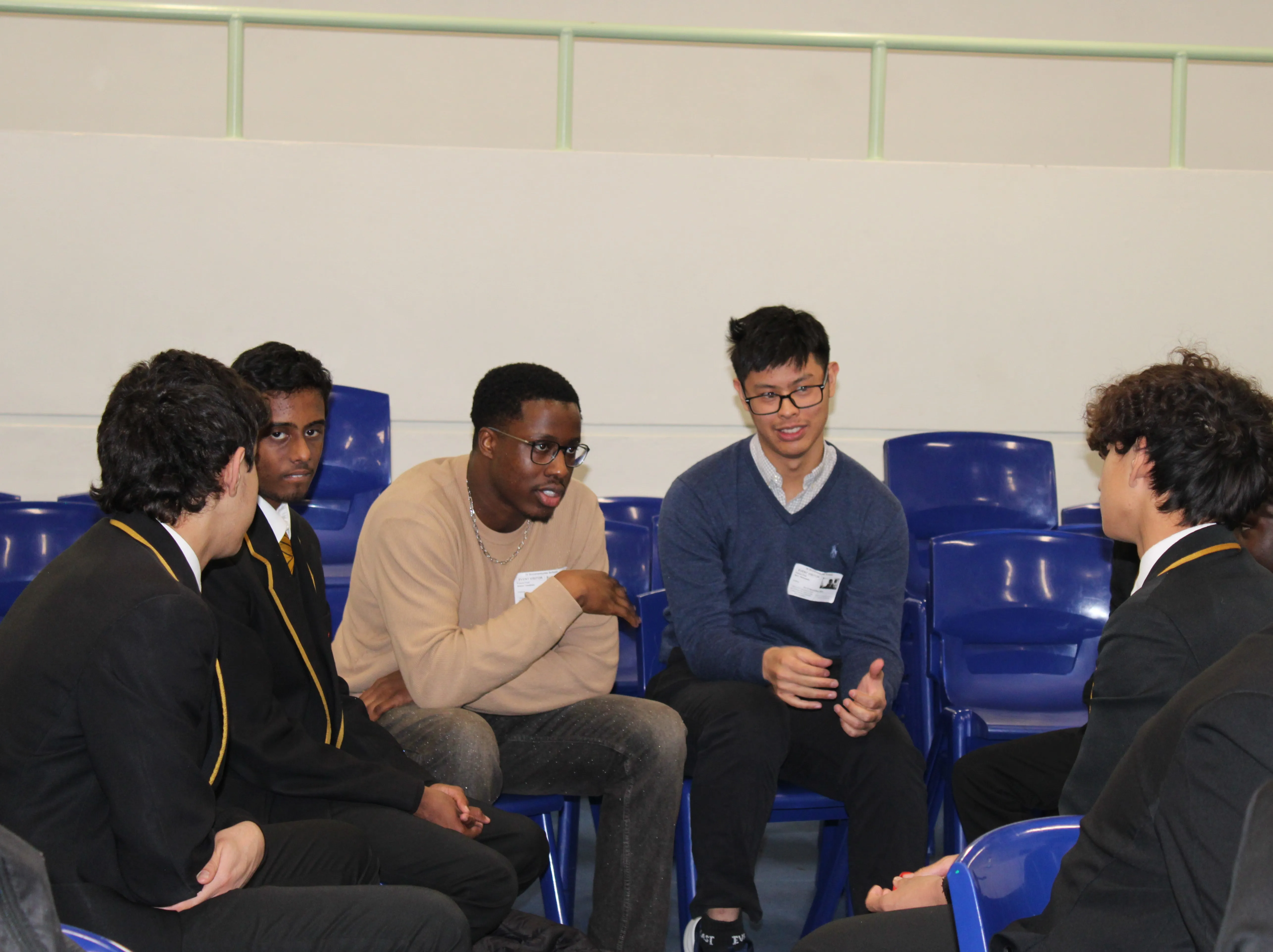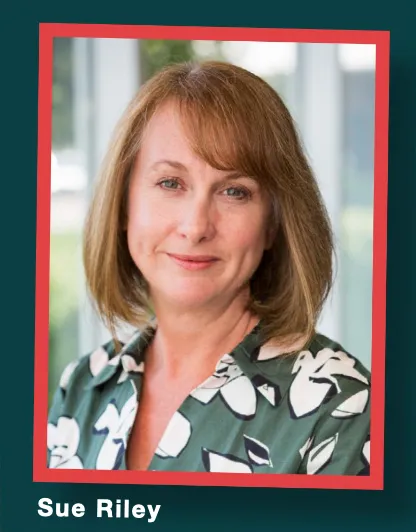
At social mobility charity Future First, we believe that every student from every walk of life deserves to thrive.
But the UK has a deep social mobility problem. For too many young people, their start in life is limiting their future. They do not have access to relatable role models to help them understand what they can achieve, nor the networks, knowledge and tools to help them get there.
Future First is working to change that and the good news is that businesses and individuals across the UK are helping us do just that. Read on to see how you can be part of the solution.
Social mobility in the UK
The UK has one of the poorest rates of social mobility in high income countries. This means that people born into low-income families, regardless of their talent, or their hard work, do not have the same access to opportunities as those born into more privileged circumstances. This lack of social mobility has wide ranging consequences.
A number of reports published over the summer paint a seemingly bleak picture.
∙ The ONS has reported that the number of young people aged between 16 and 24 in the UK currently Not in Education, Employment or Training (NEET) has risen to 872,000, with the bulk of the increase in numbers being attributed to young men1.
∙ A working paper co-authored by Social Mobility Professor Lee Elliott-Major suggested that teenagers who failed their English and Maths GCSEs tended to face worse life outcomes not just in education but in health and wellbeing and were more likely to be involved in criminal behaviour compared to their higher-achieving peers2.
∙ Research by the Education Policy Institute found that young people suspended during secondary school were twice as likely to not achieve a level 3 qualification by age 19 and be NEET by 243.
∙ Research by the Institute for Public Policy Research (IPPR) found that pupils who are on free school meals (FSM) are nearly five times more likely to be permanently excluded and four times more likely to be suspended than their non-FSM classmates, the report says, while children from some ethnic minority backgrounds are disproportionately being placed in alternative provision (AP) away from mainstream schools4.
This may go some way towards explaining why, in a report from the Sutton Trust published earlier this year, 57% of people aged 18-24 years old say it is harder for young people to succeed today than it was for older generations. And 71% of the public agreed that not all young people have the same opportunity to succeed5.
You’d be forgiven for thinking the issue is insurmountable but, we believe there is an easy and cost-effective way to address some of the problem. So, how can we turn this around and raise the aspirations of our younger citizens?
The importance of relatable role models
It can be hard for any young person to imagine what life after school or college will be. Put simply, you can’t be what you can’t see. But that is where role models come in, and the good news is that we can all play a part in helping young people find and access their path to success.
Former students of a school or college, also known as alumni, are a perfect example of the types of role models young people need. Because they have grown up in the same place and attended the same school, they are instantly relatable to current students. By sharing their education and career journeys, alumni can help youngsters envision their own path to success and motivate them to strive for their goals. Alumni can also help to challenge stereotypes and unlock access to previously gate kept sectors.
Building supportive alumni networks
Future First’s mission is to see every state school and college in the UK supported by a vibrant, engaged alumni and employee volunteer network so that all young people can ‘see what they can be’.
Our model is simple, and we know it works. We work with schools and colleges to help them build, grow and maintain thriving alumni and employee volunteer communities. These volunteers provide young people with access to relatable role models and open the doors to careers that they might not have considered before or even heard of. In the past 15 years, we’ve built over 1,250 networks, supported nearly 500,000 young people and worked with over 100,000 volunteers.
State schools already understand the benefits that alumni engagement brings, but at a time where resources are scarce, we must find ways to build capacity in the system so that it is sustainable.
Supporting careers education
Studies from the Education Endowment Foundation6 have shown that children and young people who take part in employer engagement programmes, including work experience at school, are less likely to be NEET and an increase of up to 20% in wages can be attributed to careers interventions in schools.
Resourcing schools to build a supportive and active community of alumni and local employee volunteers is a cost-effective way of enhancing careers and the wider curriculum, ensuring students are provided with experiences of the world of work and given a way into a wider variety
of sectors.
Meanwhile, many businesses already offer volunteering days to their workforce. If just a portion of those days were used to volunteer in state secondary schools, it would provide real time careers support and meaningful employer engagement would be available in the system.
This is a cost-effective way to bridge the gap between education and employment to address issues of employment readiness and sector access and give students from any background the tools and resources they need to succeed professionally and personally.
A collective endeavour
We recently launched the Future First pledge7. It brings together the government, education, employers and state school and college alumni around a commitment to support social mobility and equity of opportunity, helping young people of all backgrounds ‘see someone like me’, and reach their potential.
Our ask of the government is to increase careers advice and guidance capacity in schools and colleges; support businesses to focus some of their staff volunteer days in schools and colleges: work with civil society to commission solutions that encourage collaboration and champion innovation.
Our ask of employers is to designate staff volunteer days to support local schools and colleges to build their careers capacity; provide meaningful experiences of the world of work for young people and engagement with relatable role models from their business.
And our ask of schools and colleges is to engage their alumni and local employers to build a volunteer network and enhance careers education; appoint an alum to their governing body to ensure there is accountability for engagement.
When state schools and colleges are supported by engaged volunteers from a variety of sectors, everybody wins. Young people have more opportunities and better outcomes, volunteers improve their skills, connections and wellbeing and employers build a more diverse talent pipeline.
We CAN create a society where every young person can see and access the path to success, we just need to harness our collective strengths to make it happen.
If you want to get involved, please sign our pledge at www.futurefirst.org.uk/ff-pledge and email us at info@futurefirst.org.uk to explore how we can work together.

Sue Riley
CEO of Future First and social mobility advocate
www.futurefirst.org.uk

Further Reading
[1]https://www.ons.gov.uk/employmentandlabourmarket
[2]https://cls.ucl.ac.uk/wp-content/uploads/2017/02/CLS-Working-Paper-2022-6-The-forgotten-fifth.pdf
[3]https://epi.org.uk/wp-content/uploads/2024/08/Early-adult-outcomes-for-suspended-pupils-FINAL.pdf
[5]https://www.suttontrust.com/wp-content/uploads/2024/05/Social-mobility-and-opportunity-1.pdf